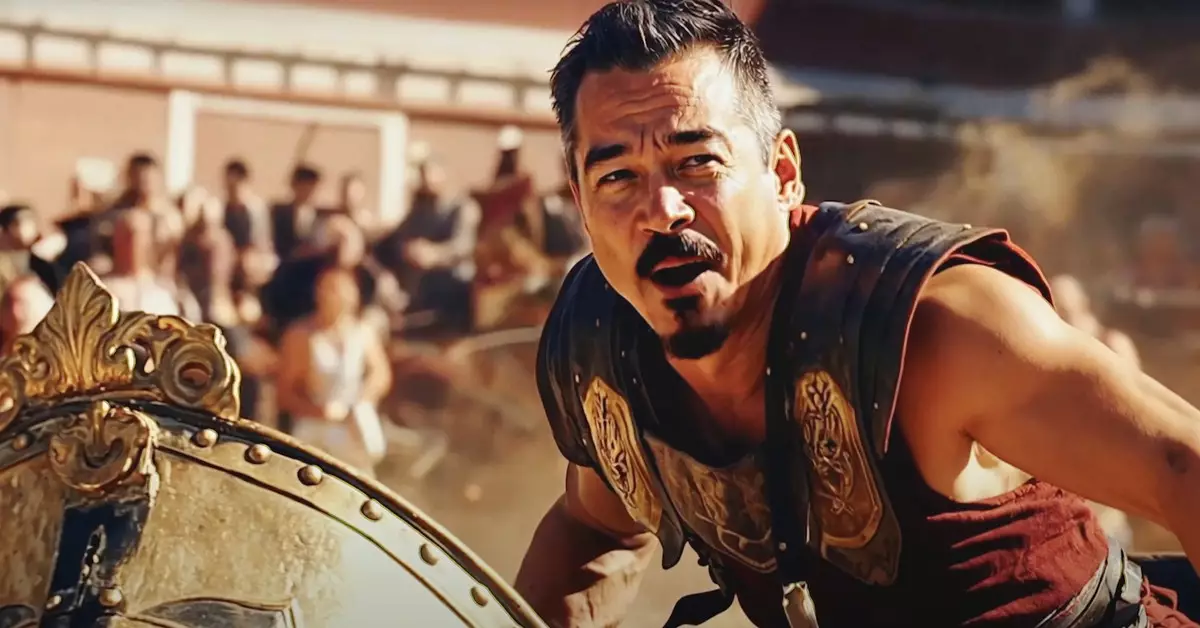The integration of artificial intelligence (AI) into the creative arts has become a significant talking point, with companies exploring its potential in various domains, including filmmaking. Recently, TCL, known primarily for its consumer electronics, embarked on a novel venture by releasing a series of AI-generated short films to showcase what this technology can achieve. While the initial foray—the trailer for “Next Stop Paris”—was met with widespread criticism for its lackluster animation and flat characters, TCL has doubled down on this concept, releasing five more shorts for its TCLtv Plus platform. However, these new offerings reveal that while AI may be evolving, it still has a long way to go in terms of producing engaging, relatable cinema.
TCL’s venture into AI-generated films raises interesting questions about the boundaries of technology and art. The shorts, intended to enchant audiences with fantastical narratives, instead illustrate the limitations of AI in storytelling. For instance, “Project Nexus” attempts to establish a gripping narrative of supernatural powers and prison break but falters in execution. While the premise is intriguing, the animation feels stilted, and the narratives come off as rough sketches of what could have been a more compelling story. Characters are depicted in a strange amalgamation of human likeness and robotic detachment, leaving viewers bewildered rather than thrilled.
Moreover, the issue is not just about animation quality; it’s also about storytelling coherence. An AI film might generate sequences that stimulate a visual response, but if the narrative elements aren’t cohesive or engaging, the overall experience suffers. The story arcs in these films often lose clarity amidst the clunky animations, making it challenging for audiences to connect with the characters or care about their journeys. The flat characterizations prevalent in these AI-generated videos serve as a reminder that the human touch is a crucial aspect of storytelling that technology has yet to replicate convincingly.
In traditional filmmaking, emotional resonance is built through nuanced performances and relatable narratives. Sadly, AI-generated films struggle to create this connection. For instance, one short illustrates a girl’s desperate race to glimpse the sun on a desolate planet, a plot reminiscent of classics like Ray Bradbury’s “All Summer in a Day.” Despite a potentially rich emotional narrative, the film’s animation lacks expressive detail, making viewers feel detached from the protagonist’s journey. As her facial expressions and responses fail to capture the weight of her struggle, the audience is left feeling indifferent.
The absence of emotional depth in these productions is a significant hindrance. While technology can generate impressive visuals, passion and empathy in storytelling come from human experiences, vulnerabilities, and exaggeration, which AI struggles to authentically replicate. As a result, viewing these AI films becomes more of an exercise in curiosity about the technology than an engaging cinematic experience.
An audacious attempt by TCL to incorporate humor into its AI-generated films often results in disjointed and uninspired content. In one of the offerings, titled “The Audition,” the farcical nature of a casting call devolves into a confusing display of AI attempts at comedy. The film’s humor hinges on transforming the actor’s appearance based on the whims of a casting director, leading to uninspired “fun” that lacks a comedic punch. Utilizing deepfake technology muddles the message when the humor from contextualized acting is lost in mechanistic imitation.
Similarly, another film tackles themes of transformation through an unsettling narrative of a woman morphing into a slug. While it aims to present a brutally honest portrayal of suffering, the awkward execution leaves audiences confused and often disturbed, distancing them from the intended poignancy. The film spirals into chaos, embodying the challenges of translating complex emotional arcs through an AI lens.
The broader implications of TCL’s AI filmmaking venture extend well beyond the screen. As artificial intelligence matures, industries may face implications regarding creativity, originality, and ownership of art. If technology continues to fall short in replicating human nuance, the use of AI in storytelling may need adjustment. While the exploration of AI’s possibilities is commendable, it raises pertinent questions about what defines the essence of storytelling and artistry in an era increasingly influenced by technological advancements.
While TCL’s experiment with AI-generated films presents an intriguing glimpse into the future of filmmaking, it also underlines the fundamental truths about storytelling. The emotional depths, humor, and relatable themes that draw us to cinema continue to elude AI capabilities. As viewers, we crave narratives infused with human experience, reminding us that despite the sweeping technological innovations, the heart of storytelling remains a distinctly human endeavor. Until AI can bridge this gap, audiences will likely remain resistant to fully embracing films driven by artificial intelligence.


Leave a Reply